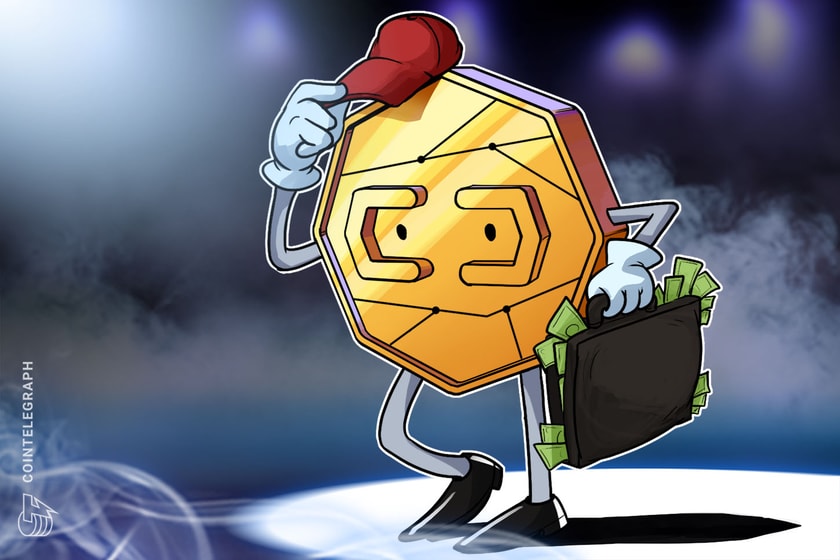The coronavirus pandemic is the only thing on most people’s minds right now around the world.
The pending economic fallout is only surpassed by the anxiety induced by surging cases in both the United States and Europe. People remain firmly in quarantine around the world, and consumer demand has fallen off a cliff as people are holed up with only basic necessities.
Paired with the awful Purchasing Managers’ Index numbers published by the National Bureau of Statistics and the China Federation of Logistics and Purchasing, as well as early U.S. indicators, we’re about to experience a double-pronged, concurrent supply and demand shock. The Federal Reserve has thrown the kitchen sink at the problem, and when paired with the pending fiscal relief, is set to reach $6 trillion in total relief injections into the U.S. economy.
But the fiscal stimulus package and $4.25 trillion Fed lending facility, which is only capitalized by $425 billion, is largely at the discretion of the Fed when it comes to allocating relief funds and zero-interest loans. We already know how that story goes. All you need is a brief primer on a similar Troubled Asset Relief Program package in 2009.
Once again, it appears that small businesses — which cannot participate in the $4.2 trillion party — are neglected to the side of the road. Small businesses are only allocated $300 billion in their own program, a clear signal of what’s about to happen to the lifeblood of American business.
Only $300 billion is allocated to support a sector of the private industry accounting for 44% of U.S. economic activity. Is more debt really the solution for restaurants, mom and pop retailers, and other small businesses as they watch their cash flows annihilated under quarantine and social distancing? Probably not.
Enter tokenization.
Tokenization in dire straits
Tokenized assets have undergone several hype cycles since the meteoric rise of the initial coin offering in 2017. First utility tokens, then security tokens and now nonfungible tokens, or NFTs. Most financial institutions tinkered with the concept of security tokens, and some have even completed audits of tokenized real estate investment trusts. However, the problems with tokenized assets have proved more difficult than anticipated.
Related: Differences Between Tokens, Coins and Virtual Currencies, Explained
The DeFi ecosystem’s surge has spotlighted their potential once again, but the recent MakerDAO disaster did not provide any assurances for financial institutions observing from the sidelines. They have their own problems to deal with now, anyways.
However, tokenization may have found its calling card: the dire need of small businesses for capital following the COVID-19 fallout.
Look, there are no easy answers at this point. Many American small businesses are likely to go under in the coming months. JPMorgan Chase is projecting a minus 14% gross domestic product for the second quarter, and it appears the unlimited Fed money tap is geared towards major businesses that the government deems above the rest at the discretion of Steven Mnuchin, the secretary of the Treasury Department.
Brick-and-mortar stores that are suffering the most right now are only offered more debt as a solution to weeks, maybe months, of lost revenue. Many are already likely in debt. And while many small businesses are likely unaware of the potential of tokenization, for them it may be a release valve if they can’t take on more debt.
Time to recapitalize.
Tokenization and the friendly consumer
To understand the positive implications of tokenization for brick-and-mortar stores struggling to stay afloat right now, it’s best to use a small, local neighborhood restaurant as an example.
Let’s call it The Diner.
The Diner has had no customers for weeks due to quarantine and people’s social distancing. With a financial runway of only one month, the restaurant is in dire straits. Usually, the place is bustling with locals who are loyal customers and friends of the owners. Now, the place is empty.
Accessing the small business loan options from the government could take weeks or months, the $1,200 checks from the fiscal stimulus package won’t save them, and more debt is onerous anyways. But The Diner has hope: tokenizing its equity and debt, or creating digital token representations of future meals at the restaurant at discounted rates.
For example, the owners of The Diner could issue tokens as equity in the business to capitalize on their financial needs. Or they could issue digital tokens representing bonds in the business, just like how mid-level or large corporations perform debt financing, with the exception that the issuance occurs on Ethereum using an NFT-token representation of the contract.
I know there are legal ramifications, red tape and hurdles here, but the conceptualizing of access to financial capital is an important first step. The government is unlikely to level punitive or injurious legal penalties against struggling small businesses that adapt with nuanced solutions to the crisis at this point, either. Talk about bad PR amid eroding trust in government.
Local customers of The Diner could subsequently purchase the NFTs of equity or bonds as a financially prudent move or to be more altruistic and help support the local business if they have sufficient capital and aren’t expecting outsized returns. Using a blockchain wallet, The Diner could even extract the best out of the governance, transferability and flexibility of NFTs using TokenScript.
One of the simpler solutions for The Diner could be just issuing ERC-20 tokens that represent fixed gift card amounts for use once the restaurant reopens again. These would basically look like discounted vouchers, as customers would be purchasing them out of loyalty to The Diner and the anticipation of a reduced price on several of their next meals there. The Diner, relying on the local community’s support, could even just launch an ICO and crowdfund money to save the business without the high fees of a distributed ledger technology platform.
Legacy financial proponents would argue, “Why the need for tokenization at all?”
Well, without diving into how the conventional financial system has high barriers to access, the relief package is largely ignoring small businesses, and the fragility of the financial system — especially over-leveraged corporations — caused the current dilemma in the first place. The advantage lies in the simplicity and rapid rollout on Ethereum.
The Diner could roll out tokens within a few hours on Ethereum, notify the local neighborhood about how to participate and have a somewhat liquid market for The Diner NFTs within the day — some maybe even trading in secondary markets. Not an ideal way to enter the tokenization world, but not a bad solution either.
When the Fed and government’s stimulus package once again ignores the needs of small businesses and instead bails out Wall Street and major corporations, small businesses may have no other option.
The only choices for The Diner are to go under, take on more debt via an assuredly slow government lending facility, or resort to tokenization and enter the digital arena of next-generation finance. There are no easy answers to the current crisis and only a few solutions.
At least tokenization may provide a small amount of hope for businesses like The Diner.
The views, thoughts and opinions expressed here are the author’s alone and do not necessarily reflect or represent the views and opinions of Cointelegraph.
Victor Zhang is the CEO and co-founder of AlphaWallet. He has spent the past five years working to transform the way banking and blockchain intersect. Prior to his venture into blockchain, Zhang worked for 17 years in international business in Asia and Australia.







